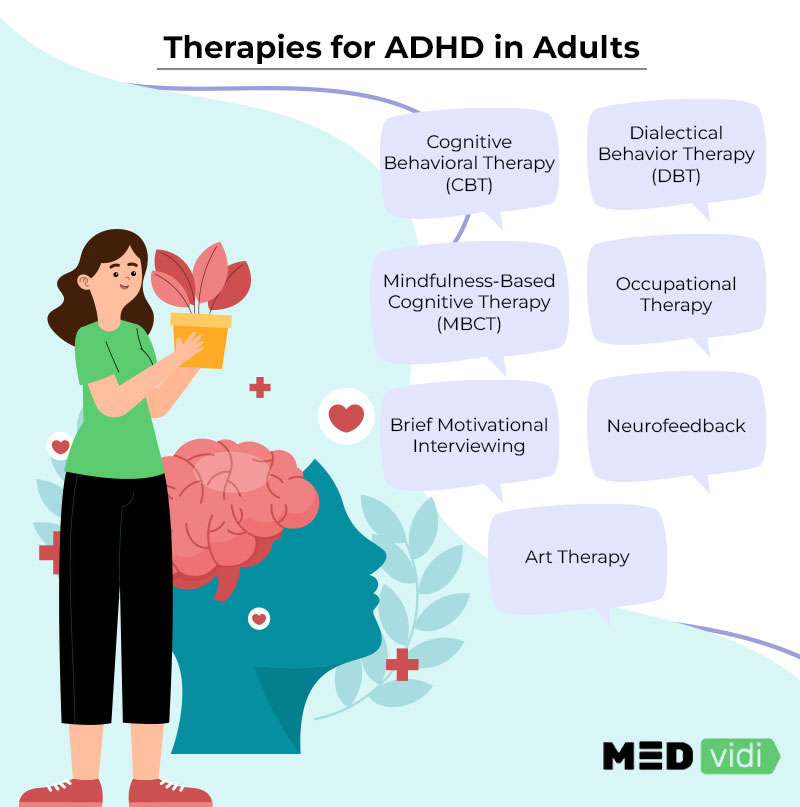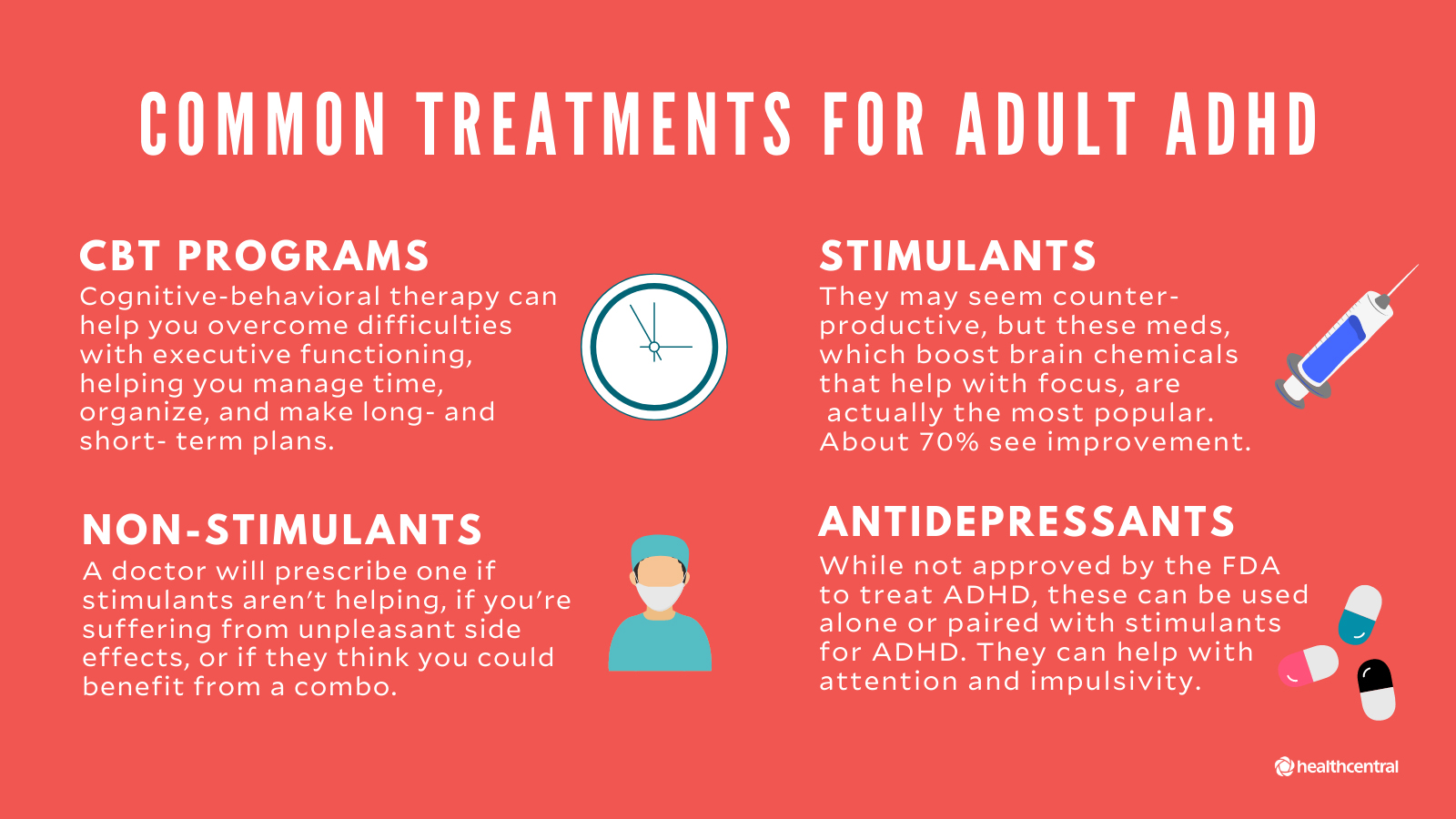Mental Health Services Designed for Your Unique Care Needs
Checking Out Efficient ADHD Therapy Alternatives for All Ages
The complexities of Interest Deficit Attention Deficit Disorder Problem (ADHD) existing one-of-a-kind difficulties throughout different age groups, necessitating a thorough expedition of efficient therapy choices. A combination of behavior treatments, pharmacological interventions, and way of life adjustments has shown guarantee in attending to the varied demands of people with ADHD. Nevertheless, the effectiveness of these methods can vary significantly based on personal circumstances, elevating critical inquiries concerning customized methods. As we analyze the spectrum of therapy techniques readily available, it becomes important to consider not only their instant impacts yet likewise their long-term implications for people and households.
Recognizing ADHD and Its Impact
Attention-Deficit/Hyperactivity Disorder (ADHD) is a neurodevelopmental condition defined by persistent patterns of inattention, hyperactivity, and impulsivity that can significantly influence different elements of a person's life. It usually shows up in childhood years, although symptoms can persist right into the adult years. The core symptoms of ADHD can disrupt academic efficiency, hinder social interactions, and make complex job-related undertakings.
People with ADHD typically deal with maintaining concentrate on tasks, organizing activities, and following up on guidelines, which can result in academic underachievement (Depression Treatment). In social contexts, impulsivity may lead to problems in creating and sustaining relationships, as individuals may interrupt conversations or make rash choices without taking into consideration effects
The variability in sign presentation indicates that ADHD can impact people differently, necessitating a personalized method to monitoring. Comprehensive awareness of ADHD's nature and effects lays the groundwork for checking out suitable therapy options customized to each individual's requirements.
Behavioral Therapies for ADHD
Many behavioral therapies have actually been created to effectively deal with the difficulties connected with ADHD, concentrating on customizing details actions and cultivating essential abilities. Among the most recognized strategies are cognitive-behavioral treatment (CBT), parent training, and social abilities training.
CBT aids individuals determine and change unfavorable thought patterns and behaviors, promoting an extra favorable expectation and improved self-regulation. This therapy commonly consists of sensible techniques for managing impulsivity and boosting company. Moms and dad training programs equip caregivers by equipping them with methods to strengthen positive habits and established regular borders, which can be particularly helpful for kids with ADHD.
Social abilities training is an additional essential element, teaching people with ADHD how to interact properly with peers - Depression Treatment. This strategy frequently involves role-playing and feedback to boost communication, teamwork, and conflict resolution abilities
Incorporating these behavior modifications into a thorough therapy plan can considerably improve working and lifestyle for people with ADHD. Eventually, the effectiveness of these therapies depends on tailored techniques that think about the special requirements of everyone, consequently promoting resilience and flexibility in life.
Medicine Options Available
For several individuals with ADHD, medication can play a considerable role in managing signs and symptoms and improving overall performance. Both primary categories of drugs prescribed for ADHD are energizers and non-stimulants.
Stimulants, such as methylphenidate and amphetamine-based medications, are one of the most typically made use of therapies. These medications function by enhancing the levels of neurotransmitters, specifically dopamine and norepinephrine, in the mind, which aids improve focus and reduce impulsivity and attention deficit disorder. They usually yield quick outcomes, making them a recommended option for many patients.

It is essential for medical care service providers to carry out a detailed evaluation to determine one of the most suitable medicine based on private needs, clinical history, and possible adverse effects. Normal follow-up and tracking are likewise important to make sure the efficiency of the chosen therapy and to make any needed changes.
Lifestyle Modifications to Consider
Managing ADHD properly expands beyond drug, as way of living adjustments can considerably boost total wellness and sign control. Including structured routines is essential; regular routines aid people with ADHD manage their time efficiently and decrease sensations of overwhelm.
Regular exercise is one more essential part. Exercise not only aids to enhance focus but additionally improves state of mind and decreases anxiety levels. Activities such as yoga or team sports can be specifically helpful, promoting both fitness and social communication.
Nutrition likewise plays a crucial role. Depression Treatment. A well balanced diet abundant in omega-3 fats, whole grains, and lean proteins can contribute to boosted focus and cognitive feature. Limiting sugar and refined foods is a good idea, as these can intensify attention deficit disorder and impulsivity
Sleep hygiene is important for managing ADHD symptoms. Developing a regular sleep routine and developing a peaceful environment can boost sleep top quality, leading to far better attention and emotional regulation.
Alternate and Alternative Approaches
Alternate and anandam psychiatry holistic methods to ADHD therapy use a diverse series of options that match conventional methods. These approaches often concentrate on lifestyle adjustments, dietary treatments, and restorative practices that intend to boost overall well-being while attending to ADHD signs and symptoms.

Mindfulness and behavioral therapies are also getting grip as alternative interventions. Practices such as yoga, reflection, and cognitive-behavioral treatment can grow self-regulation and improve attention. These methods support psychological strength, which is particularly advantageous for people with ADHD.
Natural supplements, such as ginkgo biloba and ginseng, are occasionally discovered; nonetheless, it is important to seek advice from healthcare specialists prior to including these into therapy strategies. While option and alternative strategies can give valuable support, they need to preferably be used along with evidence-based therapies to achieve optimal results for managing ADHD throughout any ages.
Final Thought
In recap, efficient ADHD therapy demands a detailed strategy that includes behavior treatments, medication, way of life adjustments, and all natural methods. Customized treatments can dramatically enhance people' functioning and lifestyle, while appropriate medication guarantees ideal resource signs and symptom monitoring. Adopting organized routines, engaging in regular physical activity, and exercising mindfulness can improve psychological regulation and interest. This complex approach underscores the relevance of personalized care in resolving the varied demands of individuals with ADHD across all age groups.